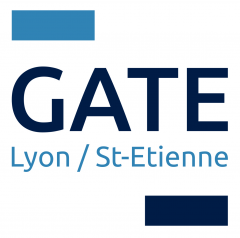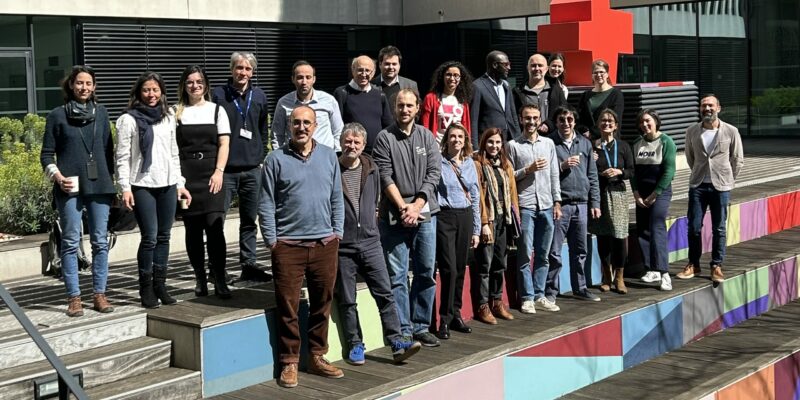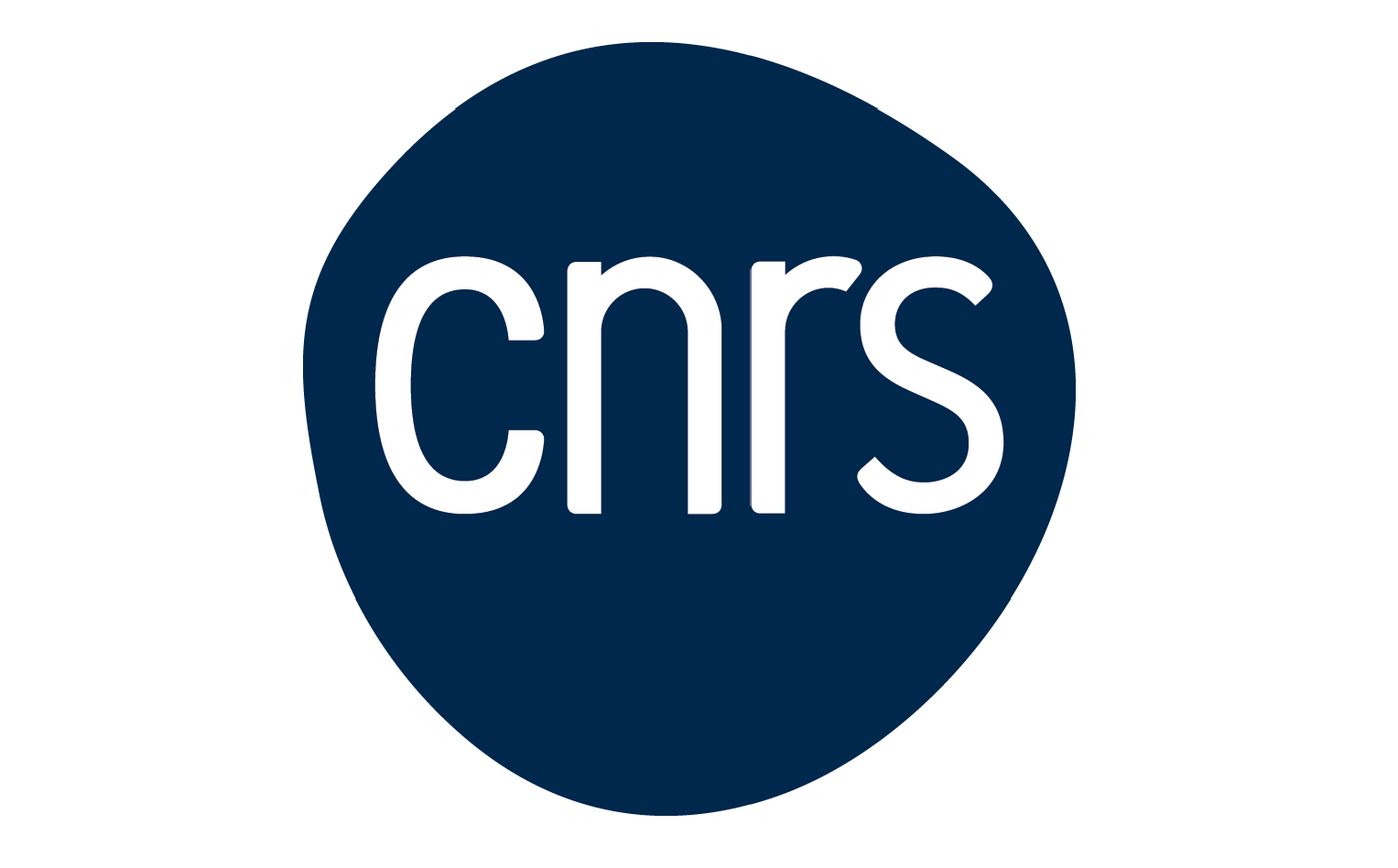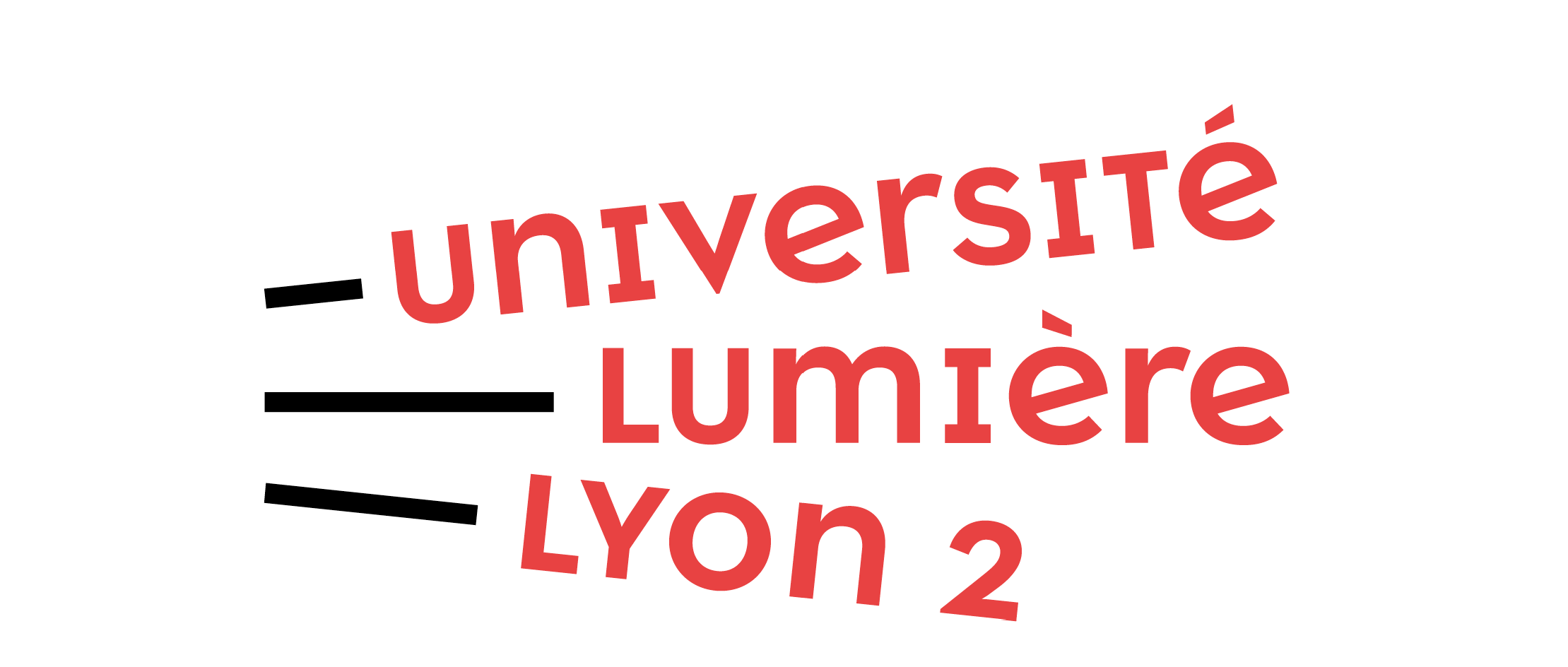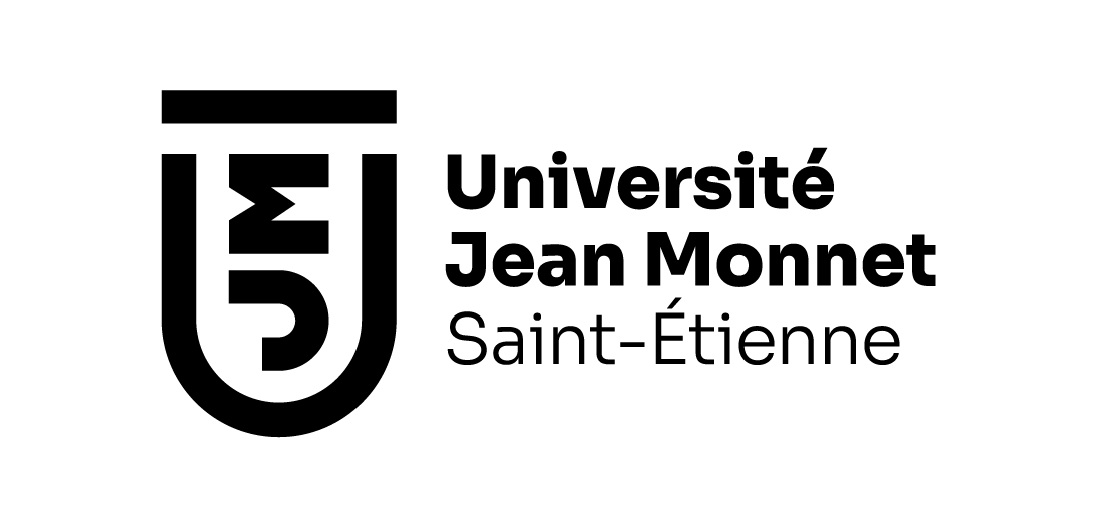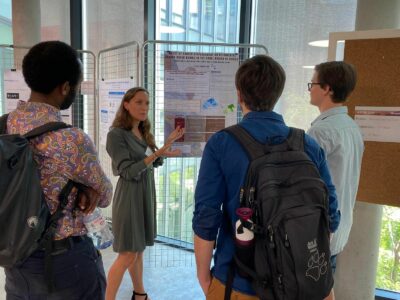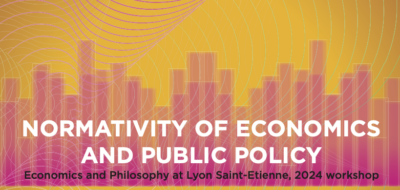Groupe d'Analyse et de Théorie Economique
Le "GATE Lyon-Saint-Etienne" (Groupe d'Analyse et de Théorie Economique) est une Unité Mixte de Recherche (UMR5824) rattachée au CNRS Sciences humaines & sociales, à l'Université Lumière-Lyon 2, à l'Université Jean Monnet-St-Etienne et à l'emlyon.
À la une
Voir toutes les actualitésAntoinette Baujard sur France Culture
Tribune dans Le Monde, par Sonia Paty
Visiting professor: David Wolf (Kobe University)
ASFEE 2024 Young Researcher Prize for Elodie Corvaisier, PhD student at GATE
Development Economics Workshop
Economics and philosophy at Lyon Saint-Etienne
Behavioral and Experimental Economics GATE-NTU Workshop (BEELS) – May 15-16, 2024
Prochains évènements
Retour à l'agendaThis thesis examines how leaders drive normative change, foster cooperation in heterogeneous groups, and how shared characteristics influence leaders’ selection. Three experimental studies investigate how leaders influence coordination, cooperation, and adherence to social norms in dynamic vs. static settings. Chapter 1 explores whether leaders can facilitate the abandonment of detrimental norms in societies where members hold different normative preferences. Results indicate that in conservative societies, progressive minorities are unable to overturn established norms without external support. Conversely, while progressive societies are more likely to experience shifts in norms, these changes often come at a high social cost. By coordinating individuals’ expectations, leaders help both types of societies overcome detrimental norms, but the speed of normative change and the welfare outcomes depend on whether leaders align their recommendations with their preferences or those of the majority. Chapter 2 investigates the persistence of leaders’ influence in resolving normative conflicts that emerge in the production of public goods within heterogeneous groups, focusing on redistribution mechanisms. Findings show that most individuals favor a redistributive mechanism that, in exchange for maximum contributions from all group members, promotes reciprocity by redistributing resources from those who benefit most to those less advantaged. While this mechanism ensures both maximum efficiency and fairness in final gains, only a small minority of groups successfully coordinate on this principle without an external coordination device. Through communication, leaders play an important role in aligning beliefs, allowing a majority of groups to maximize efficiency and promote fairness. Chapter 3 examines how shared characteristics with potential candidates influence leaders’ selection, focusing on both competence and political identity. The findings reveal that voters tend to favor candidates who share their political identity, even at the expense of competence. This political identity bias overrides other affinities such as sport or art preferences, demonstrating the powerful influence of political identity on decision-making.
This article evaluates the environmental impacts of vehicle advertising bans. We develop a structural model of demand and pricing of vehicles which incorporates the effect of advertising. The model allows for heterogeneity in advertising exposure and advertising spillover effects within and across brands. We estimate this model using rich data on sales and advertising at the demographic-group and product level from 2012-2021 in France. Results suggest that advertising has a significant positive effect on vehicle sales and reduces consumers’ price sensitivity. Compared to environmental taxation and subsidy measures, the effect of advertising is much stronger on sales, but less significant on prices. Counterfactual simulations show that an outright ban on advertising does not necessarily lead to positive environmental effects. Targeted bans on advertising for polluting vehicles are more efficient in achieving this goal.
We conducted a controlled experiment to investigate how different gender frames in instructions and norm salience affect economic behavior and norm compliance. Our experiment, conducted in German, systematically varied the framing of instructions by using a male, female, or gender-inclusive form and whether a prescriptive norm was introduced. Participants played three standard two-player economic games measuring prosocial behavior, specifically focusing on sharing, cooperation, and honesty. We explored whether participants behaved differently when their self-reported gender matched the grammatical gender used in the experimental instructions. Overall, we find no strong evidence that a match between the participant’s self-reported gender and the norm formulation led to a higher increase in norm compliance compared to the differences in a mismatch or gender-inclusive frame. The results show that the framing of instructions had the strongest impact on sharing behavior, particularly among male participants, where a match between the participant’s gender and the instructions’ gender frame led to a higher increase in norm compliance compared to gender-inclusive formulations. In contrast, we found only mild or no significant differences in cooperation and honesty across treatments. Our findings help to shed light on the question if and how gender in language and norm salience shape behavior. These insights are important for organizations and in administrative contexts where we observe an ongoing debate about the usage of gender-fair language.
We consider the problem of sharing the cost of cleaning the non-point source pollution of industrial sites among the firms that own these sites. The bilateral liabilities between firms are depicted by an undirected graph. We introduce and characterize axiomatically two allocation rules inspired by the celebrated Polluter pays and Beneficiary pays principles in environmental law. The first one shares evenly the cost of cleaning up a site among the firms that can have caused the corresponding environmental damage. The second one charges to each firm the entire cost of cleaning up its own production site. We also establish connections with cooperative game theory.
This paper experimentally investigates the role of confidence sensitivity and meta-confidence in career-related decision-making. While the effects of overconfidence on economic outcomes have been widely studied, the implications of confidence sensitivity – the ability to distinguish between accurate and inaccurate performance – have been largely overlooked. Yet, in various contexts, a lack of sensitivity can be just as detrimental as overconfidence, as it undermines individuals’ ability to assess their abilities accurately. Additionally, individuals may hold beliefs about their own confidence sensitivity, and they might use such “meta-confidence” beliefs to guide their behavior. In our experiment, participants performed a task and then chose between a competitive or non-competitive compensation scheme. In addition, some participants were given the option to seek performance feedback before committing to a choice. Our results show that confidence sensitivity significantly improves the quality of compensation scheme decisions, while low meta-confidence is associated with increased feedback-seeking behavior prior to the compensation decision. We provide causal evidence for this latter finding: a treatment condition designed to reduce meta-confidence led to an increased willingness to seek feedback. Overall, this paper underscores the richness of individuals’ beliefs about their abilities and demonstrates how an in-depth analysis of these beliefs, using tools from cognitive psychology, can offer new insights into economic decision-making.
Derniers articles parus
Voir toutes les publicationsArticle dans une revue
2024
- ref_biblio
- Tiemele Aristide Affroumou, Isaac Amedanou. Internal Conflicts and the Moderating Role of Property Rights in Sub-Saharan Africa: Implications for Property Taxation. Journal of African Economies, In press, ⟨10.1093/jae/ejae007⟩. ⟨hal-04610777⟩
- Accès au texte intégral et bibtex
-


- ref_biblio
- Giuseppe Marco Attanasi, Roberta Dessi, Frédéric Moisan, Donald Robertson. Public Goods and Future Audiences. Journal of Economic Behavior and Organization, 2024, 224, pp.580-597. ⟨10.1016/j.jebo.2024.06.007⟩. ⟨hal-04697100⟩
- Accès au bibtex
-

- ref_biblio
- Antoinette Baujard. Penser l’aide à la décision publique autrement. Amartya Sen et le débat sur l’information. Cités : Philosophie, politique, Histoire, 2024, 98 (2), pp.47-61. ⟨halshs-04626818⟩
- Accès au bibtex
-

- ref_biblio
- Antoine Bozio, Bertrand Garbinti, Jonathan Goupille-Lebret, Malka Guillot, Thomas Piketty. Predistribution vs. Redistribution: Evidence from France and the U.S.. American Economic Journal: Applied Economics, 2024, 16 (2), pp.31-65. ⟨halshs-04353086⟩
- Accès au bibtex
-

- ref_biblio
- Fortuna Casoria, Fabio Galeotti, Marie Claire Villeval. Trust and social preferences in times of acute health crisis. Annals of Economics and Statistics, In press, 154, pp.5. ⟨10.2307/48777885⟩. ⟨hal-03974756⟩
- Accès au texte intégral et bibtex
-


- ref_biblio
- Cyril Chambefort, Magali Chaudey. Blockchain, tokens, smart contracts, and “decentralized autonomous organization”: Expanding and renewing the mechanisms of governance?. European Management Review, 2024, 21 (3), pp.511-515. ⟨10.1111/emre.12677⟩. ⟨hal-04673533⟩
- Accès au bibtex
-

- ref_biblio
- Paul Charruau. Spatial wage disparities and human capital externalities in France. Journal of Regional Science, 2024, 64 (4), pp.1154-1182. ⟨10.1111/jors.12696⟩. ⟨halshs-04732400⟩
- Accès au bibtex
-

- ref_biblio
- Lise Clain-Chamosset-Yvrard, Xavier Raurich, Thomas Seegmuller. Entrepreneurship, growth and productivity with bubbles. Journal of Macroeconomics, 2024, 81, pp.103622. ⟨10.1016/j.jmacro.2024.103622⟩. ⟨hal-04718292⟩
- Accès au texte intégral et bibtex
-


